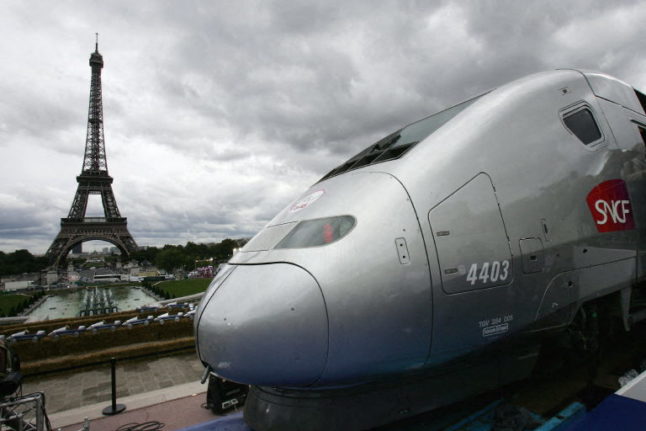The Renfe train link set to connect Barcelona with Paris will not be ready for the Olympic Games starting in the French capital in July, as was initially planned, due to administrative delays in France.
Spain’s Transport Minister, Óscar Puente, has indicated that the line is now scheduled to be up and running by the end of the year.
Renfe is Spain’s state-owned rail company. In 2023, it began offering cross-border services to Lyon and Marseille.
The delay comes after news that another international route, linking Barcelona with Amsterdam, is also set to be postponed due to technical problems on the French side. This is because the train would have to pass through France on its way to the Dutch capital.
However, such long administrative delays do seem somewhat surprising when the French publicly owned rail company SNCF is the operator, the infrastructure manager, and the regulatory body in charge of approving trains.
READ ALSO: New Spain-France train routes: What you need to know
In Spain these roles are separated between the operator Renfe, the infrastructure manager Adif, and the Railway Safety Agency (Agencia de Seguridad Ferroviaria).
After SNCF broke up a joint venture with Renfe that offered high-speed services between both countries two years ago, the Spanish company has been running the Barcelona-Lyon and Madrid-Barcelona-Marseille routes alone since the summer of 2023. However, SNCF is currently the only one with a direct rail link between the Catalan capital and Paris.
Renfe’s aim was to reach Paris by summer of 2024 to coincide with the Olympic Games in the French capital.
In 2012, Renfe and SNCF jointly operated train routes between Spain and France (with each operator managing their country’s route) but this alliance ended in 2022.
Barcelona-Amsterdam route
The Barcelona-Paris route is not the only to be stopped in its tracks due to French delays.
The planned night route between the Catalan capital and Amsterdam will be run by the European Sleeper company, but it is also having problems getting approved. According to the railway company, France is obstructing the launch of the service, which is scheduled to start in 2025.
The train has to pass through France, but the French railway line is reportedly overcrowded, authorities claim, delaying the start of the route.
“It’s not easy to get a place on the timetable there,” Elmer van Buuren, co-founder of European Sleeper, explained recently on Dutch radio station BNR.
Van Buuren said the French rail network is overcrowded and undergoing extensive renovations and repairs after years of delays. “This kind of work is mainly done at night, so it clashes in terms of priorities,” van Buuren said of his company, specialists in night sleeper train travel.
“The French will have to make room,” he added.
Another international sleeper train (the Nightjet) which promised a direct link between Barcelona and Zurich by the end of 2024 has also had its plans put on hold, but Austrian operator ÖBB has not disclosed the reasons why Spain is no longer on its route map.



 Please whitelist us to continue reading.
Please whitelist us to continue reading.
Member comments